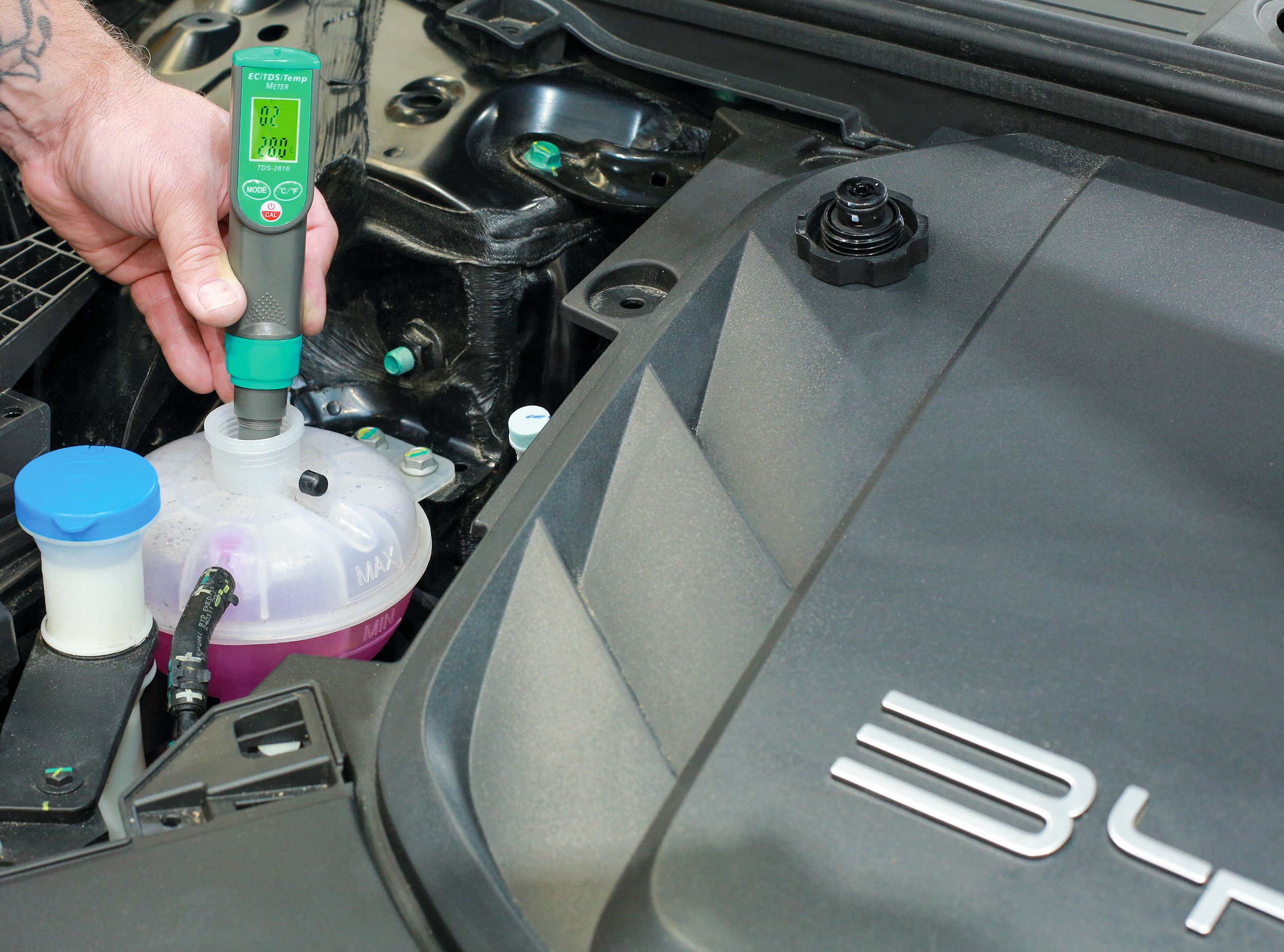The coolant safety check every EV garage needs — accurate coolant conductivity testing for TVs
Modern electric and hybrid vehicles demand a different approach to cooling system maintenance. Unlike conventional engines that use diluted antifreeze, many battery-electric vehicles (BEVs) and hybrids rely on non-diluted, low-conductivity coolantsdesigned to protect sensitive high-voltage components. These specialised fluids minimise the risk of current leakage, ensuring both safety and system reliability.
The problem arises when coolant levels drop due to evaporation, service procedures, or small leaks. Instead of replenishing with the correct OEM-specified coolant, vehicle owners — or even some less-aware service personnel — may top up with water. This practice significantly increases the coolant's conductivity, potentially allowing current to flow through the fluid — creating a serious risk of short circuits or damage to high-voltage components.
To help workshops avoid this costly mistake, Laser Tools has recently introduced their Coolant Conductivity & TDS Tester (part number 9204). Compact, accurate and easy to use, this tester allows technicians to quickly assess coolant conductivity and confirm that it remains within safe limits. This ensures compliance with manufacturer requirements and safeguards vehicle systems.
Waterproof conductivity & TDS (Total Dissolved Solids) meter — provides fast, reliable on-site checks.
Measurement ranges: Conductivity 0–9990 μS; TDS 0.0–19.9 ppt.
Resolution: Electrical Conductivity: 1 μS (<1999 μS); 10 μS (>1999 μS) / 0.01 mS. TDS: 0.1 ppt. Temperature: 0.1°C.
Accuracy: EC ±2% F.S.; TDS ±2% F.S.; Temperature ±0.5°C.
Convenience: Auto shut-off, powered by 2x AAA batteries (supplied).
CE & RoHS compliant.

